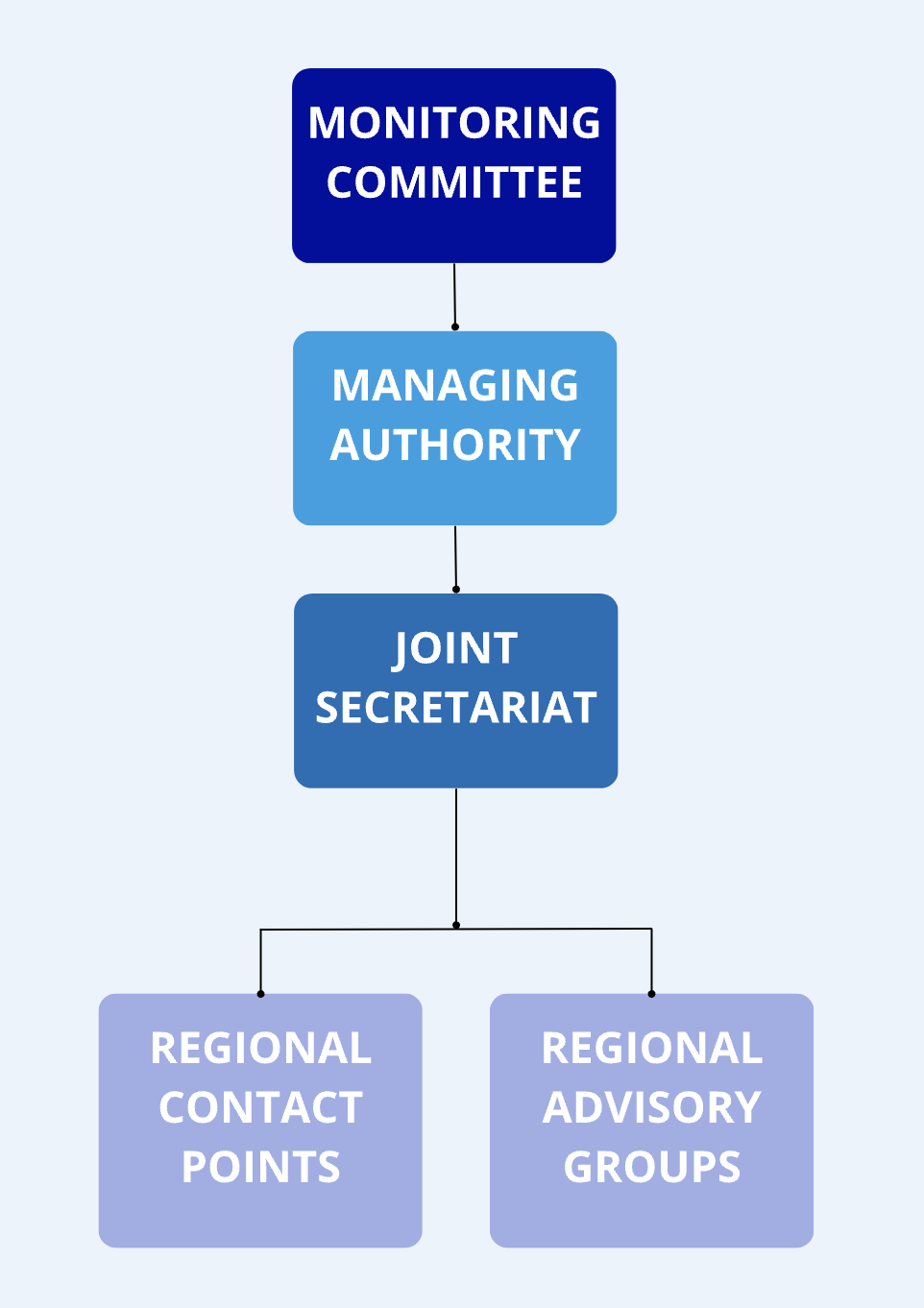Programme Bodies
The Interreg NPA programme is managed and supported by a number of programme bodies that are responsible for administering the programme and assisting projects. A short description of each programme body can be found below, further details are available in the Programme Manual.
The Monitoring Committee (MC) is responsible for supervising the programme and its overall task is to ensure the quality and effectiveness of the programme's implementation.
The MC is also responsible for the selection of project applications. Each programme partner country is represented on the committee and decisions are made by consensus. In addition, the European Commission attends meetings of the MC in an advisory capacity.
The MC also includes the following permanent observers: representatives from the Scottish Government, from Northern Ireland Executive, from the Government of Canada, from the Nordic Youth Council and from the Nordic Atlantic Cooperation.
The MC meeting meets twice a year, the meeting dates are published on the events section of the website. After each meeting, a summary of the MC decisions is published on the page of the meeting.
The Managing Authority (MA) is the body formally responsible for managing the programme on behalf of the participating partner countries. It is the County Administrative Board of Västerbotten based in Umeå, Sweden.
The MA issues the Grant Letter and signs the contracts on behalf of the programme.
The MA also plays an important role in the financial claim process for project partners, where the MA is responsible for ensuring that all project expenditure has been adequately checked and validated by the controllers before it can be authorised for payment. The MA also handles the transfer of payments to projects.
The Joint Secretariat (JS) carries out the day-to-day operational administration of the programme.
The Secretariat consists of a small team based in Copenhagen, Denmark. The Secretariat is happy to assist with any queries regarding project ideas, partnerships, draft applications, project management, etc. The Secretariat also has a role in the assessment of project applications and in the drafting of decision proposals for approval or non-approval. Applicants are strongly encouraged to consult and involve the Secretariat in the development of their projects. The Secretariat works in close cooperation with the Regional Contact Points.
Regional Advisory Groups (RAGs) have been established in each programme partner country.
These groups have an advisory role in the assessment procedure of main project applications. RAGs consider the suitability and priority of project applications from a regional perspective and make a recommendation on whether or not to support the project. Their input is used in the Secretariat’s decision proposal to the MC before it takes a final decision on the project application.
The members of the RAGs have different fields of expertise upon which they base their recommendations. The RAGs also promote and facilitate project development.
The Northern Periphery and Arctic Programme covers a large geographical area and each of the participating programme partner countries has a Regional Contact Point (RCP), who is a local source of advice and information on the programme.
The RCPs work in close cooperation with the Secretariat and have expertise and knowledge on how to develop and manage a transnational project. They also hold programme events throughout the year. This is why it is always worthwhile to consult your RCP in the planning and implementation of your project.
Contact details for each Regional Contact Point can be found here.
Controllers are tasked with checking that all project expenditure is eligible according to the NPA Eligibility Rules, European regulations and national legislation.
The procedures for Control vary from one programme partner country to another. Each partner should refer to the control system of the country where it is located. Finland, Ireland, Sweden, and Iceland operate with a centralised control system, having one or few nationally appointed Controllers. Norway, Faroe Islands, and Greenland operate with a decentralised control system, where partners need to get their controller of choice approved by a National Controller.
Contact details for each Regional Contact Point can be found here.
